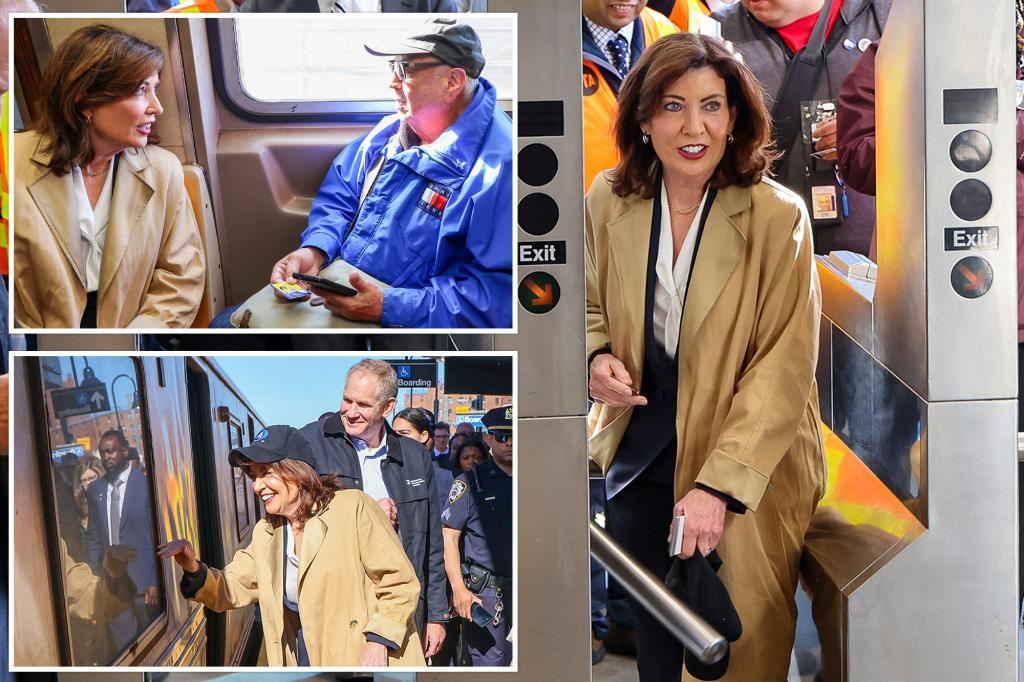ALBANY – All aboard the debt train?
Gov. Kathy Hochul took a victory lap on restored service on the Rockaway A Train Monday morning, but it’s still a mystery how the flailing MTA will plug a funding hole in its massive five-year capital plan.
Hochul acknowledged last week that a deal included in state budget talks to fund most of the MTA’s record breaking $68 billion capital plan proposal includes a $3 billion shortfall that she expects the transit agency to cover on its own by coming up with savings and issuing new debt.
“We’ve asked for the MTA to come up with $150 million worth of savings, which I know they’re capable of, and that money would result in bonding the additional $3 billion dollars,” Hochul said.
With reporters in tow, Hochul posed for pictures and handed out stickers to riders on the A train Monday morning. She then delivered some remarks at a press conference alongside other pols and MTA Chair Janno Lieber before leaving in a state police SUV that ferried her away without taking questions.
A rep for Hochul referred The Post to comments from Lieber where he committed to making cuts, but didn’t elaborate on the logic behind taking on additional debt.
“The legislature and the governor have challenged us to figure out how to do all the work that was programmed in the $68 billion dollar program and to do it for less and we’ve accepted that challenge,” Lieber said.
Watchdogs like Rachael Fauss from Reinvent Albany are concerned that the MTA may have to break precedent and tap into its operating revenue from subway fares and other sources to fund multi-year projects housed under its massive capital plan.
“We don’t know what the future holds for the economy and the MTA, so making a commitment to use operating savings for long-term debt is risky,” Fauss said.
She noted that could lead to fare hikes or cuts to service if an economic downturn hits as Hochul herself had forecasted.
“What you don’t want is the MTA using operating revenues or fare box revenue to bond if they don’t have to, because that puts pressure on them and means less money for their operating budget,” Fauss said.
Lieber said as recently as last week he’s committed to keeping MTA debt amounts at or below 15% of operating revenues.
“There’s lots of ways that we can accomplish the saving and efficiency we have talked about but we’re just getting started. So I don’t want anyone to think that we’re just piling on the borrowing,” Lieber said.
Multiple lawmakers told The Post they hadn’t been looped in on the MTA’s plans either.
Some expressed similar concerns about possibly bonding out operating revenues for the capital plan.
“Generally that’s not a very good financial procedure,” Assemblyman David Weprin (D-Queens) told The Post.
Read the full article here
